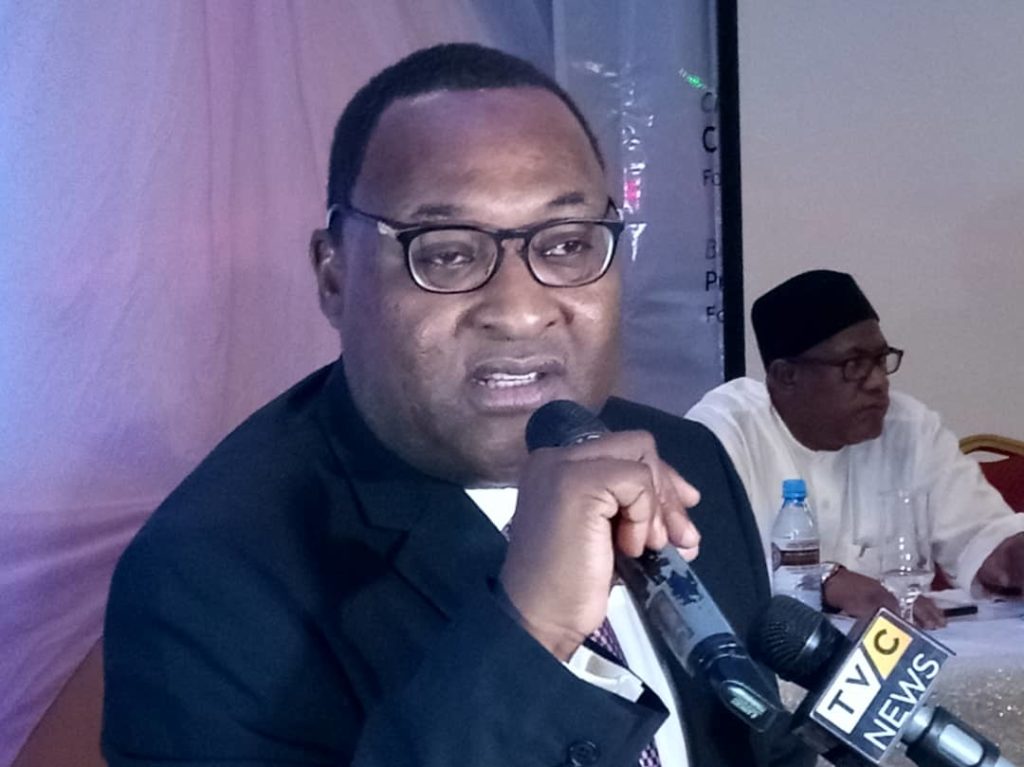…Outlines other factors
The Executive Secretary of the Nigerian Shippers’ Council (NSC), Mr. Hassan Bello has identified absence of institutional framework, relevant policies such as the National transport policy as factors militating against effective shipping development in Nigeria.
Bello who was speaking at an event in Lagos recently noted that the National Transport Policy is an omnibus policy to give direction to all multimodal transport system adding that Nigeria needed not only the ships but also the ports.
He described the ports in Apapa and Tincan as museum ports which according to him had reached their capacity noting that “when the ports were established, nobody knows that it is 2.5% population increase per annum and how could we have the capacity of being constant while our population is rising?”
He disclosed that when the Nigerian Shippers’ Council carried out a study with the World Bank, it was discovered that about 5,113 trailers were in Apapa every day when all that was needed was about 1,400 even as he wondered what the excesses of those trucks were doing at the ports.
In his words,” There is no effective modern traffic management system. The port is exclusive, apart from the multimodal connection to the port, the rail, the road, the inland waterways, the pipeline; it is exclusive to the port. In some of the ports you never see anything called trucks but here everybody is running to the ports and that is our fear even when they said we must stop what is happening today at the Lekki Deep seaport. What is the transportation going to be there? Are we still going to repeat the tragedy of Apapa and use the existing facilities despite the fact that it is deep sea or deep water port?
“A port is as good as its hinterland connection. It is appreciated because goods are going to be evacuated, port is not storage, in fact goods should not be examined at the seaport. Goods should be examined off dock. So, you just use the port to offload. That’s why Shippers’ Council is promoting inland dry port. Put goods for inland dry ports from the ships to the train and let them leave the port. Also, we have to pay attention to the Lekki Deep Seaport because it is very important that we start talking about rail connection.
“We also have investment capital problem, hostile operating climate and lack of infrastructure including large deep water port and inland connectivity”.
Speaking on re-establishment of the national carrier, he recalled that Nigeria had tried and failed to enter into international shipping not necessarily due to the huge capital investment required but because of her inability to compete with her foreign competitors who had lists of incentives from their home government.
Bello who is also the Chairman of the National Fleet Implementation Committee observed that the national fleet should be private sector driven but that government had very important role to play saying that at the moment, Nigeria cannot claim to have a viable indigenous fleet which according to him was a disappointment considering that about 60% to 70% of ship traffic to West Africa were destined to Nigeria.
“The earnings from freight were very important to our economy. If we had earned the freight that we give to foreigners, we are creating jobs for foreigners, we are contributing to the growth of their economy, while we could have just sat down, really think about it, start with the oil and say, let us have a semblance of indigenous people carrying this oil. What they always tell us is that we don’t have capacity but what we don’t have is the opportunity. Capacity could be created, we have seamen who have done this many times, they own their ships, they could do that.
“This being more Catholic than the Pope in saying that we don’t want government interference, we should jettison that. We like private sector led but government must as a matter of statutory obligation, as a matter of contract with the citizens, at one time or the other, come and have a hands-on involvement.”, he contended.
Send your news, press releases/articles to augustinenwadinamuo@yahoo.com. Also, follow us on Twitter @ptreporters and on Facebook on facebook.com/primetimereporters or call the editor on 07030661526, 08053908817.

